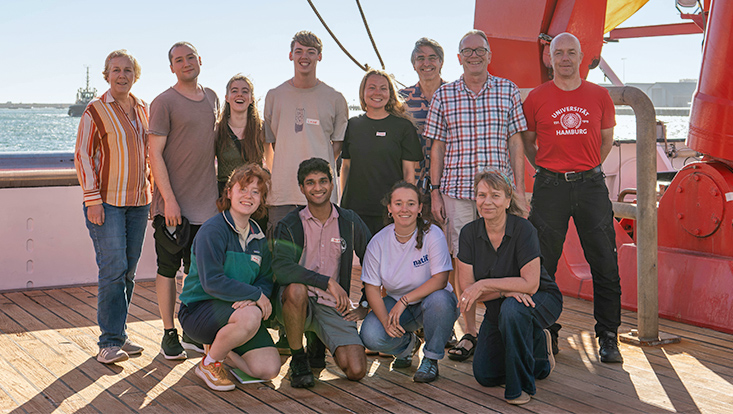A warning against the society of wasteIMF researcher Dr Claudia Ofelio and others argue that the way modern societies overconsume and waste natural resources are often disregarded when discussing global ecology.
15. Dezember 2021, von Website Team Biologie
Just as cells metabolise food into energy, so do modern industrialized societies metabolize natural resources and energy into products.
In a new paper published in Science of The Total Environment, IMF researcher Dr Claudia Ofelio and others argue that the way modern societies overconsume and waste natural resources are often disregarded when discussing global ecology.
They examined the natural resources that are being consumed/wasted by society today. Throughout their article they cite previous studies showing how societies, especially from industrialised countries, have wasted resources in different ways, especially at the very source of the consumption chain.
For example, past research has found that humanity directly wastes or mismanages around 78% of the total water withdrawn, 49% of the food produced, 31% of the energy produced each year. They also note that humanity’s rate of resource consumption has grown faster than population growth and is unevenly distributed.
Dr Ofelio contributed to the paper’s section on fisheries and aquaculture. In it she describes how wasteful both industries have become. “Food is [constantly] wasted in the world’s fisheries,” says Dr Ofelio.
In the paper she mentions the FAO’s recent report that 35% of the global catches are wasted. Other research suggests that about a quarter of these losses are linked to by-catch or discards, mainly from trawling. “That's quite shocking data,” she says. We are witnessing the 6th mass extinction event, the only one that is being caused by the appropriation of resources by a single species, state the authors.
Fortunately the authors also suggest some solutions to reverse this problem. For example, moving away from using GDP as an indicator of national progress, and instead using other indicators that account for environmental and social wealth of societies.
For fisheries, they suggest improved methods such as monitoring discards from fisheries, regulating by-catch, [CO1] and using methods that recycle and reuse waste nutrients as fish food (called biofloc technology[CO2] ).
Finally, they suggest a set of ‘technological strategies[CO3] ’ to improve how we manage natural resources, making them more fit for a circular economy that, like ecosystems, rely on renewable resources.
Overall, the paper’s authors note that real change will come from moving away from an economy based on constant growth prioritizing a degrowth strategy that rely on social equity, well-being and ecological sustainability.
“The main solution has to be found between the whole economic, scientific, political and societal system and has to be based on truly sustainability,” says Dr Ofelio.
Paper: Marín-Beltrán, Isabel, et al. "Scientists' warning against the society of waste." Science of The Total Environment (2021): 151359. DOI: doi.org/10.1016/j.scitotenv.2021.151359


